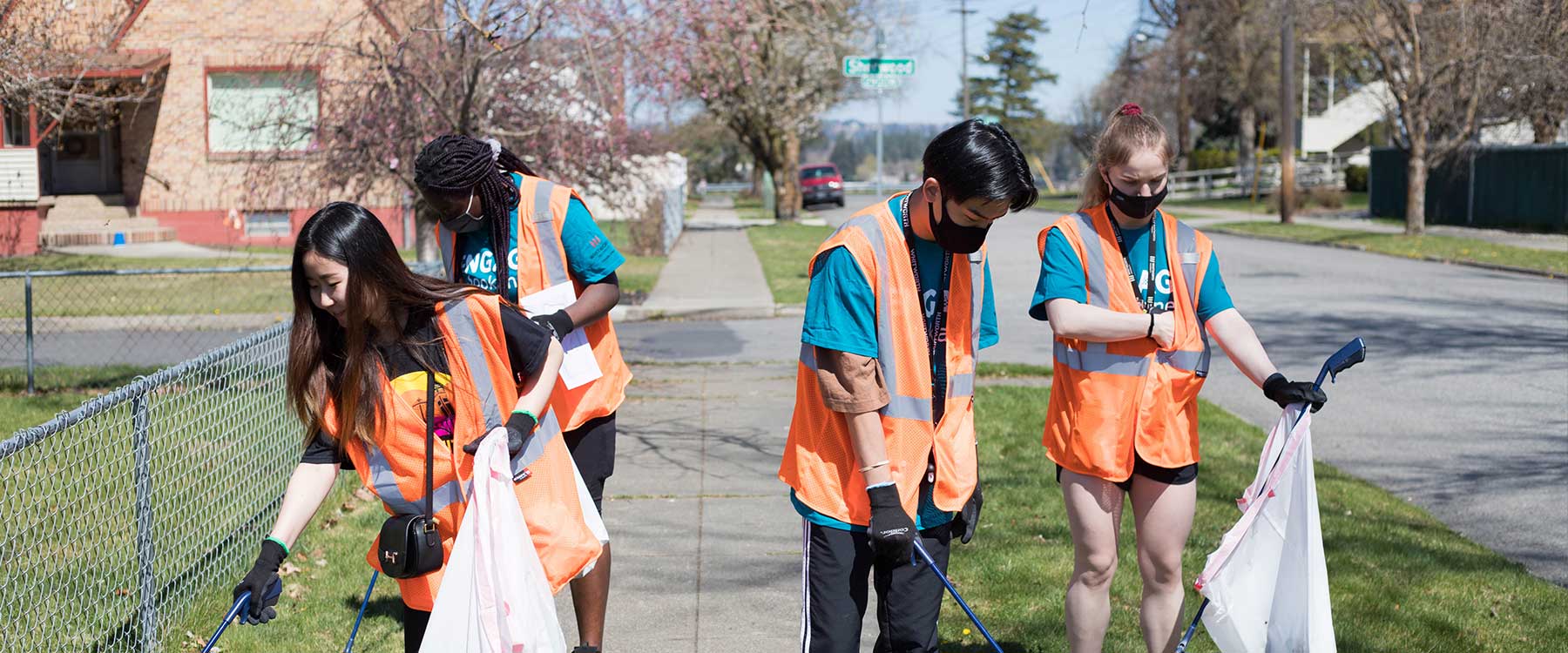Partners in Campus and Community Engagement (PICCE)
PICCE (Partners in Campus and Community Engagement) is an intercollegiate collaborative resource designed by and for the faculty, staff, students and community agencies in service-learning partnerships. PICCE is supported by Eastern Washington University, Gonzaga University, Spokane Community College, Spokane Falls Community College, Spokane Public Schools, Washington State University (Spokane) and Whitworth University. University directors on community engagement meet monthly with volunteer directors from community agencies and local school districts to support ongoing initiatives and identify new areas for collaboration. Key initiatives include: the annual Community Engagement Institute conference bringing university and nonprofit groups together to create social change; the development of a Common Partnership program to recognize and increase support for nonprofit agencies in close partnership with universities; the annual community-partner awards program; and collaboration in support of days of service and other regional or national events.
PICCE offers a number of services to agencies in Spokane that use service-learning students as volunteers. The partnership organizes trainings and professional development opportunities for community partners as well as faculty and staff. PICCE has also worked to standardize service-learning paperwork across Spokane colleges and universities, so that agencies have a common experience working with students from any institution.
| PICCE Contacts | Phone Number |
|---|---|
| Eastern Washington University Office of Community Engagement | 509.359.2792 |
| Gonzaga University Center for Community Engagement and Service Learning | 509.313.6824 |
| Spokane Falls Community College Center for Service-Learning | 509.533.3522 x24-123 |
| Washington State University-Spokane Student Affairs | 509.358.7978 |
| Whitworth University Center for Community Engagement | 509.777.4279 |
| Spokane Community College | 509.533.7082 |
